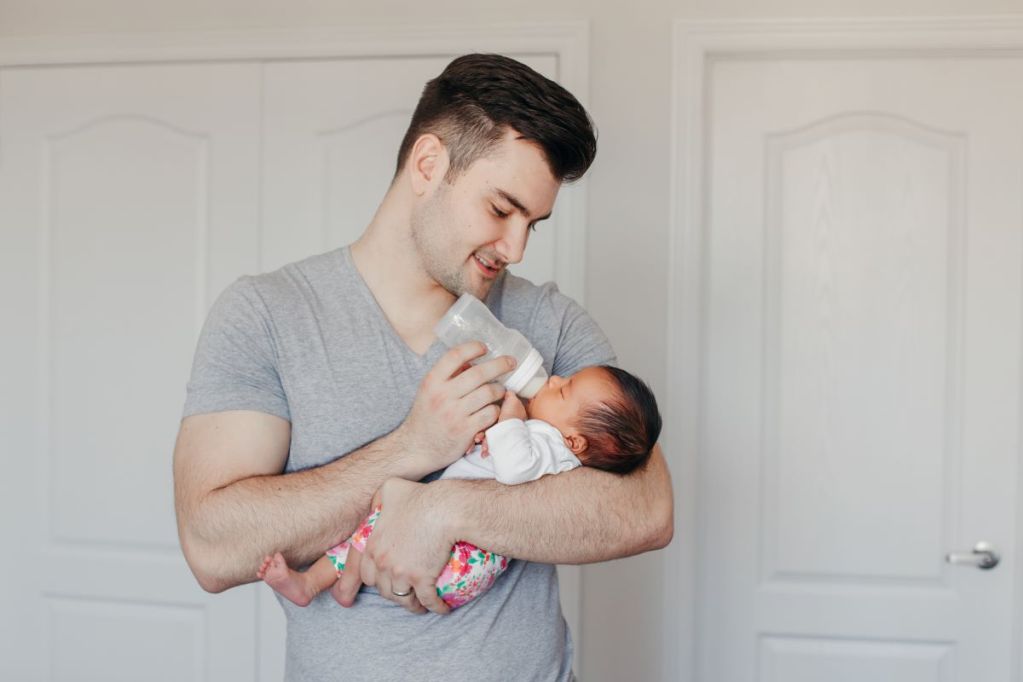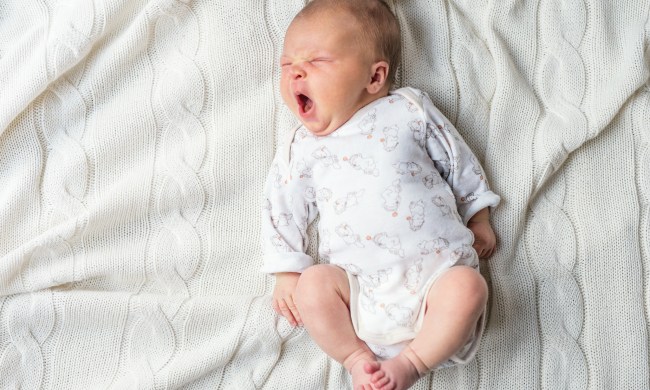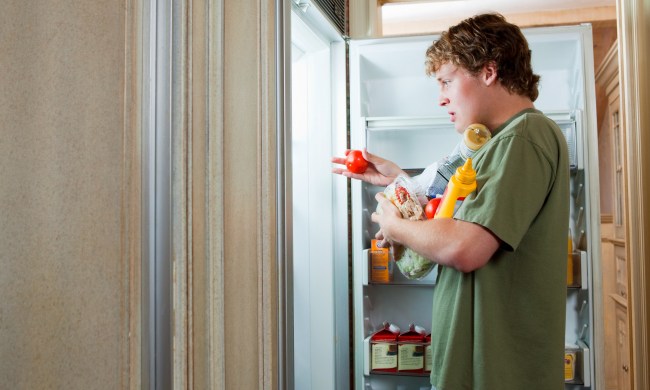As an adult, there is nothing that brings you to your knees like getting the hiccups. Imagine how it must feel to be a new baby and get the hiccups. If you have noticed your bundle making those telltale noises, this is how to get rid of baby hiccups and prevent another attack from coming on.
When a baby hiccups

Baby’s first hiccups
You might not remember the first time you had the hiccups, and neither will your baby. It might sound a little like a sci-fi movie, but your baby could have had hiccups while still in your stomach. There is no way to know just by feeling your stomach, but those little kicks could have been baby hiccups.
Baby’s next hiccups
A baby can have hiccups the second they are born. As humans with organs that have natural reflexes, we all could get the hiccups at any age. But because a baby doesn’t quite know how things work yet, infants up to 12 months old tend to “catch” the hiccups a lot more than at any other time in one’s life.
Why babies hiccup

A baby gets the hiccups for the same reason you do — from swallowing too much air or eating way too quickly. When we are hungry and wolf down that pasta dish in 30 seconds, we might be full but are also left with the hiccups. Likewise, when babies eat too quickly, they get hiccups. The same thing happens when a baby sucks on an empty bottle, just taking in air instead of formula or breast milk.
When your stomach goes from one temperature extreme to the next too closely, it could trigger an episode of hiccups. If you give your child a warm bottle and then cold baby food, or the opposite, warm baby cereal and then cold milk, they could develop hiccups.
When it’s not hiccups
A sneaky little condition that mimics hiccups is gastroesophageal reflux (GERD). It’s a disease where bile or stomach acid aggravates the food pipe lining. Common in children under 2 years old, symptoms are spitting up, gagging, choking, and being irritable after a feeding. Babies can spit up when they hiccup, so you might think it could be GERD. If your child has multiple symptoms associated with GERD, take them to the doctor to know for sure and to learn how to treat it.
Baby hiccups are natural
If you notice your baby having a little hiccup fit, don’t panic just yet. Hiccups are a natural occurrence and do not mean there’s something wrong. When anyone has a coughing fit, you want to monitor them until they can get their breath back on their own and it doesn’t turn to choking. The same applies to a baby experiencing a hiccup fit — you want to wait it out.
How to stop hiccups and help prevent future fits

If baby is breastfed
To prevent your baby from developing hiccups, check that the latch is correct to prevent the baby from taking in additional air. You also want to switch sides and always burp in between switching.
If baby is bottle fed
The same concept applies to feeding with a bottle. You want to pay attention to how long your baby feeds and stop halfway through for a good burp. With bottles, check the nipples for tears or large holes. Babies like to chew on the bottle, and those tears lead to extra air, which could give the baby hiccups.
No matter how you feed your baby, there are tips to keep the hiccups to a minimum.
- Sit baby upright for at least 20 minutes after each feed
- Always go for a burp in the middle of the feeding and after
- Try smaller, shorter feedings
- Wait it out
As an adult, there is nothing quite like going straight down for a nap after a meal. But you want to keep your baby in an upright position when they finish eating. Try for at least 20 minutes, but 30 would be great for their digestion. While they eat, make sure to get a burp. Stop halfway for one and then try to get another when they’re done eating. You should also experiment with shorter feedings more frequently if your baby always seems to get the hiccups. If your baby isn’t in any distress, wait things out. Your body is amazing and can correct a lot of things.
What you shouldn’t do

With babies, never try any of the remedies you might use with an adult. Don’t scare them, don’t hold them upside down, don’t try to get your baby to hold their breath, and don’t try giving your baby a glass of water. Basically, don’t do any of those home fixes you learned as a kid.
You also shouldn’t leave your baby to have the hiccups all day. If it’s been longer than 10 minutes, start to keep an eye on it. A baby can have multiple fits throughout the day, but they shouldn’t last longer than about 10 minutes. If it’s been a long time — say hours — bring your child to the doctor. If it’s been longer than 10 minutes and your baby seems to be in distress or pain, go ahead and call the doctor.
While a hiccup or two could be funny and cute at first, it might worry parents (especially new parents) if it goes on for longer. When the little gasp spasms attack your baby, know how to get rid of hiccups and keep your baby from having additional difficulty with their indigestion.




